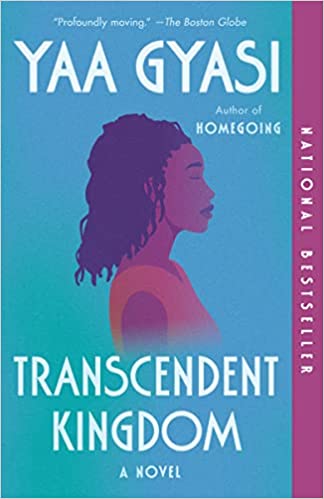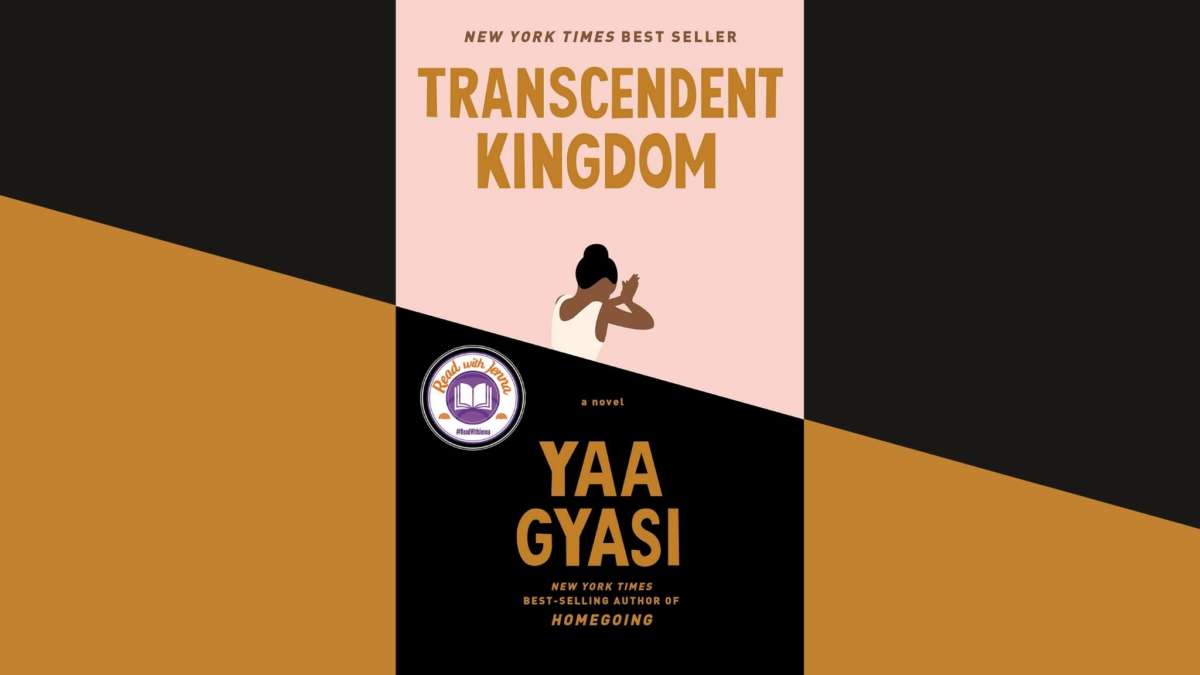Transcendent Kingdom by Yaa Gyasi
What's It About?
"Poised to be the literary event of the fall." —Entertainment Weekly“… Splendor and heart and insight and brilliance.” —Ann Patchett
“Absolutely transcendent. … I am quite angry this is so good.” —Roxane Gay
“Meticulous, psychologically complex …” —Publishers Weekly (starred review)
“With deft agility and undeniable artistry, … an eloquent examination of resilient survival.” —Booklist
Transcendent Kingdom by Yaa Gyasi (Knopf) is the first-person narrative of Gifty, a Ph.D. student at Stanford University studying neuroscience, whose research involves examining the effects of addiction on mouse brains in the hopes of finding effective treatments.
Gyasi describes Gifty’s fascination with neuroscience with wondrous awe:
“… if I could only understand this little organ inside this one tiny mouse … in order to apply it to those of us who made up the species Homo sapiens, … the only animal who believed he had transcended his Kingdom … That belief, that transcendence, was held within this organ itself. Infinite, unknowable, soulful, perhaps even magical. I had traded the Pentecostalism of my childhood for this new religion …”
An allusion to the book’s title is found within this text, speaking to its thematic significance, as well as serving to develop Gifty’s motivation.
When her suicidal mother moves in with her, Gifty is forced to reckon with the events in her past, and how they led to this moment for both Gifty and her mother. Her childhood was shaped by four forces. First, her mother — a complex, difficult woman, whose character was a series of contradictions, both strong and weak, both loving and cold. Second, Gifty’s larger-than-life father, Chin Chin Man, who struggled to find happiness in the small Alabama town the family had settled in and subsequently abandoned his family to return to Ghana. Third, the death of Gifty’s beloved brother, Nana, from an opioid overdose. Fourth and finally, the role of religion, which permeated her childhood, along with her later abandonment of its tenents and the uneasy relationship between science and religion.
At the start of the novel, Gifty has become driven by her research to the exclusion of all else. Her mother’s difficulties and Gifty’s own reckoning with her past nudge Gifty out of her lab and encourage her to build friendships with her colleagues.
Gyasi is a beautiful writer, and this novel is wonderfully layered. She wrestles with the big questions of life — death, grief, faith, hope, family, home, hate — in a way that is both accessible and complex. This deep look into the mind and heart of a Black immigrant family’s experience in America is rich and thought-provoking.
Gyasi’s exploration of racism is striking in both its subtly and pervasiveness, as well in the underlying tension it creates as events unfold. At first glance, Gifty and her family are embraced by their white church and mostly white small-town community, but over time it becomes more clear that the communities’ benevolence is as laced with racist judgments as it is fickle. This isn’t headline-making, blatant racism. Rather, it’s daily, pervasive racism that eats away at Gifty and her family’s confidence and self-worth — with devastating consequences.
Gyasi’s character development, voice and style are those of a gifted writer. It is a pleasure to read the words of a master. Readers of literary, character-driven novels will find Transcendent Kingdom an exquisite, fascinating work.
RELATED POSTS





